Hi, I'm Michael, 43, he/him. Here you will find posts and images pertaining to Fantasy and Science Fiction, Monsters, Maps, Dinosaurs, Mecha, Myths, Writing, and Roleplaying Games
Don't wanna be here? Send us removal request.
Text
so itchio has shadowbanned any games tagged with 'nsfw', 'adult', or 'erotic' so they don't show up in searches, and several devs have reported that their r18 games have been removed from the site with no warning
you know, maybe the internet shouldn’t be controlled by payment processors and terf lobbyists. and maybe people should be more concerned about this rise of censorship on queer media.
55K notes
·
View notes
Photo

Genus Dasornis
Dasornis was a genus of pseudotooth birds that appeared in Eocene Europe. Dasornis was quite large with a wingspan the size of a small plane ranging from 16-20 feet. Currently there is only one accepted species Dasornis emuinus with other possible fossils yet to be accepted into the genus, current taxonomy places it either with pelicans or with waterfowl. It was probably a seafaring bird and behaved in a similar fashion to exatant albatrosses.
Phylogeny
Animalia-Chordata-Aves-Neorinthes-Neognathae-Odontopterygiformes-Pelagornithidae-Dasornis
Source
167 notes
·
View notes
Text
That second link isn't working any more, so here's the fixed URL.
Ma-ia hi
Ma-ia ho
Ma-ia ha
Ma-ia ha ha
374K notes
·
View notes
Text
11K notes
·
View notes
Text

had to get this out before we collectively move on from coldplay ceo
21K notes
·
View notes
Note
I bring cute dinosaurs and some facts about them to hopefully brighten people's day.
All of these are dinosaurs that we have some definitive evidence for what they actually looked like that isn't just bones.

Caihong (meaning rainbow) was a 2 legged 4 winged dinosaur that was as small as a human hand. It had a strange crest, and its feathers are so well preserved that we know for a fact it was iridescent black with a more colorful iridescent head.

Sinosauroptyrex was also a lil guy. It had 2 legs, small arms, and was about the size of a cat. It's very likely to have been brown/red and white with a striped tail and black bandit mask. Looked similar to a red panda. Funnily enough, sinosauroptyrex was found in China. It's name even (basically) means winged chinese lizard.

Borealopelta!!! (Name meaning north shield! How fucking badass is that?) I highly suggest looking at the actual fossil for this guy!!
By complete random chance this animal was preserved almost perfectly. Preserved skin isn't unheard of, but what makes this specimen incredible is the fact its skin isn't distorted or shrunken. its a mold/imprint of the actual animal.
This specimen makes me so greatful to be alive. We can can just type in "borealopelta" and see a picture of whats almost a statue of a creature I'll never see because it existed millions of years ago. Millions of years!!!!
Anyway, Borealopelta was a 4 legged armored dinosaur with pink/red skin and countershading. Like most nodosaurs it's covered in spikes and plates with 2 particularly long ones on it's shoulders while lacking a club. It was 5 feet tall and 12 feet long. Personally it reminds me of a dog fused with a tank. Armor puppy. Maybe the D-Team were onto something.
This specimen's stomach contents were also preserved. It ate ferns that were partially covered in charcoal. It's possible a forest fire had recently occured in the area. It was also probably summer.
Fossils are so so so cool. They give us a glimpse at creatures and a world that once was. It's sad that they're gone but we're here now because of it. Thanks to fossilization they've been remembered.
We have equally amazing creatures alive with us today. We may not have armor puppies, but we have fluffy puppies. The descendants of dinosaurs sing every morning. Some of them even mimic us for fun. You can't have a pet tyrannosaurus but one of Earth's other apex predators is small and fluffy and likes to step on our keyboards and go meow really loudly because we stopped petting them for 5 seconds.
Some beautiful reminders and a few fun photos of dinosaurs on 1,278 days left!
Thank you thank you thank you for my favourite ask to date- I hope to see you again my friend!
31 notes
·
View notes
Text

I just pull her into a hug.
"I love you." "I will always love you." "Thank you. I'm sorry. Thank you."
2K notes
·
View notes
Text

Fantasy-ifying the Pacific Coast 🐲
(journal sketchpage wip)
11K notes
·
View notes
Note
do you have any images of cassowaries eat a tasty fruit?
Why yes, here you go...

Southern Cassowary (Casuarius casuarius), EAT A TASTY FRUIT!!!, family Casuariidae, order Casuariiformes, northern Australia
photograph by Jan Wegener
4K notes
·
View notes
Text
The thing about Lovecraft's work is that he did write about some genuinely fucked up critters, but he doesn't seem to have had a clear picture of which ones those are. "Dog that inhabits right angles" and "sapient colour" are treated as exactly as mind-bending as, like, "guy who looks like a fish" and "big penguin".
7K notes
·
View notes
Text


For this drawing I challenged myself to keep it more sketch-like. And… I think I like the result? :D
Story-wise: This drawing is showing the past and present of the elves Vannatir (high elf) and Deimos (dark elf). I wanted to fully show the contrast of their current warlock pact situation compared to their happy past within one drawing.
2K notes
·
View notes
Text

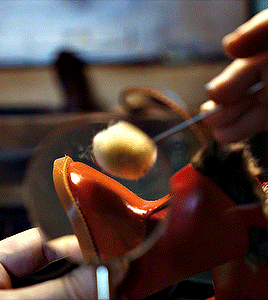
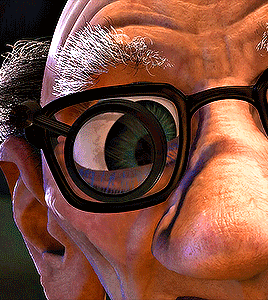
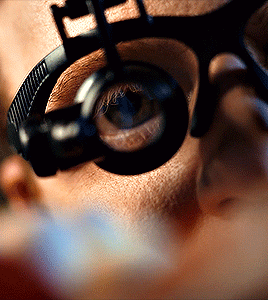
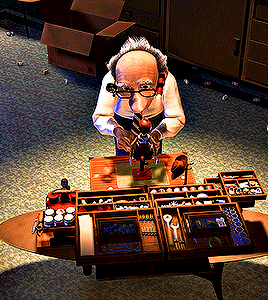
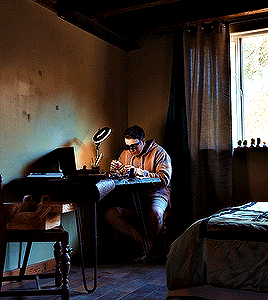
Toy Story 2 (1999) dir. John Lasseter | Game Changer 7x08 "Fool's Gold" (2025)
18K notes
·
View notes
Text
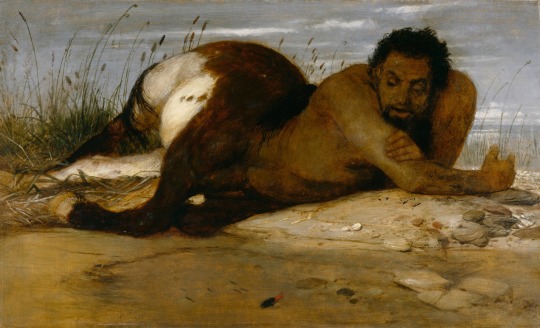
Centaur Watching Fish by Arnold Böcklin (1878).
I love love love Böcklin’s mythical pieces, they have this sense of realism, and often even sensitivity.
51K notes
·
View notes
Text
When Colossal Biosciences announces they have cloned Triceratops


56 notes
·
View notes
Text
Can’t reblog the post going round containing these two screenshots:


So I’ll put my addition here:
This also applies to women who complain about feminism requiring them to work, rather than being ‘ladies of leisure’. Women equivalent to them in the past always worked - who do they think were the maids, housekeepers, cooks, nannies, wet nurses, governesses, washerwomen, spinners, weavers, seamstresses, nurses, midwives, etc - and today’s equivalent of the past’s ladies of leisure can afford to be ladies of leisure now. Feminism fought for women’s work to be acknowledged, valued, and fairly paid, and that fight is still ongoing.
18K notes
·
View notes